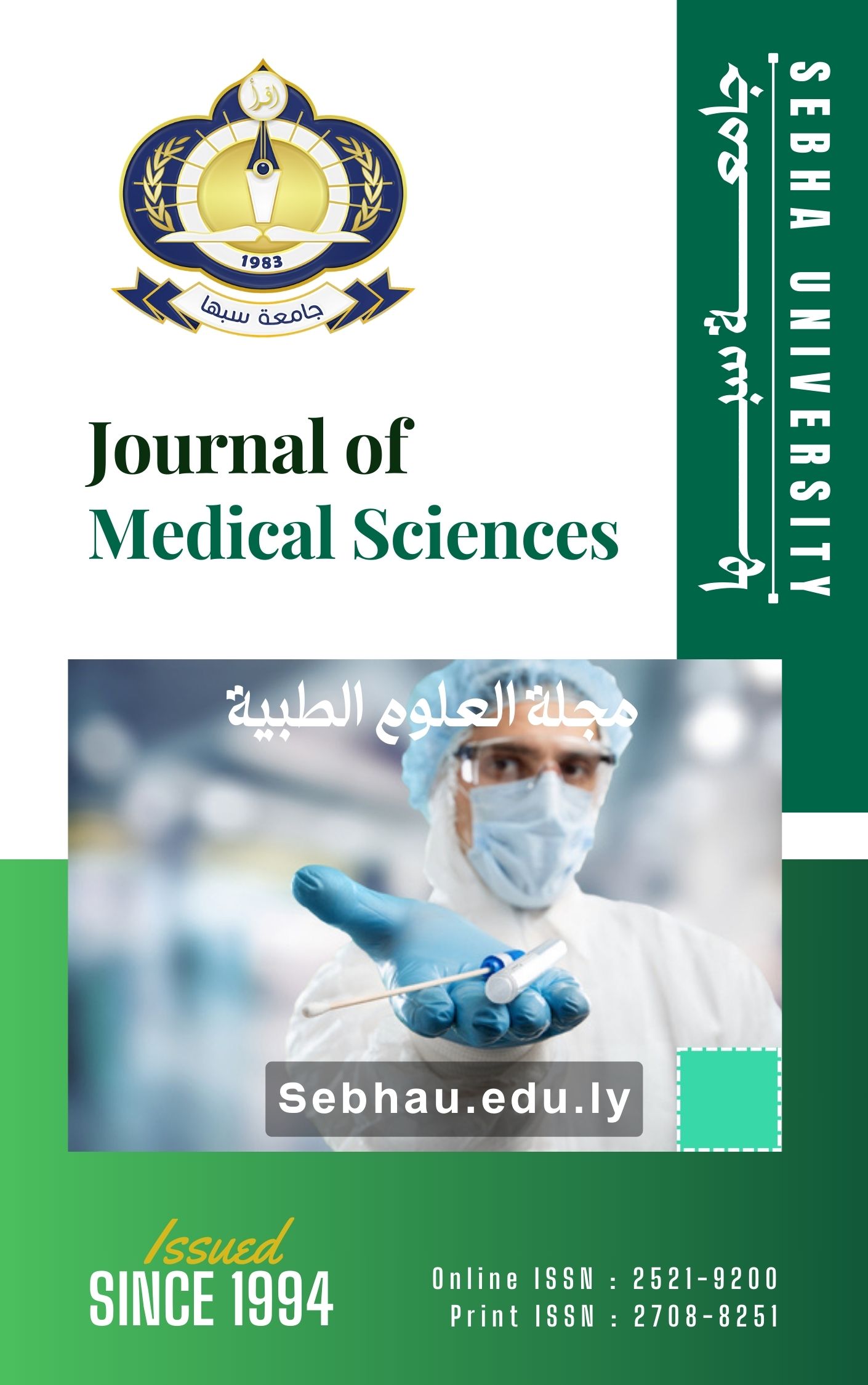The incidence of Helicobacter pylori infection and its impacts in diabetic patients
DOI:
https://doi.org/10.51984/joms.v19i1.2833Keywords:
Helicobacter pylori Infection, Diabetic patients, UbariAbstract
Diabetes is a long-term metabolic disease marked by elevated blood sugar levels. Research indicates that compared to persons without diabetes, patients with diabetes may be more susceptible to the Helicobacter pylori outbreak. Unfortunately, not enough is known about how common Helicobacter pylori infection is in diabetics, particularly in southern Libya. Thus, the goal of our research is to determine how frequently diabetic individuals in various parts of Ubari are infected with these germs.
One hundred fifty female and male diabetic patients who visited medical clinics in various Ubari places participated in this study. H. pylori IgG antibodies were measured in blood serum samples using the rapid test and enzymatic immunoassay. The level of fasting blood sugar, the human body mass index, the HbA1c, and blood group types were gathered. A questionnaire was utilized to gather information about a few habits. The individual's data was examined statistically. The results of P< 0.05 were deemed significantly different. Immunological tests revealed that the H. pylori bacteria injured 45.33% of both sexes. When it came to eating habits, the frequency of eating spicy food and smoking were not statistically different between the H. pylori-infected diabetic participants and the non-infected ones with varying values for BMI, HbA1c, and FBS. The research indicated that there was actually a variance in FBS level across HP-infected and non-HP-infected diabetic patients, slightly different among BMI, but there was no impact of the other factors.
Downloads
Downloads
Published
License
Copyright (c) 2024 Journal of Medical Sciences

This work is licensed under a Creative Commons Attribution-NonCommercial-ShareAlike 4.0 International License.
In a brief statement, the rights relate to the publication and distribution of research published in the journal of the Sebha University, where authors who have published their articles in the Sebha University journal can use or distribute their articles. They reserve all their rights to the published works, such as (but not limited to) the following rights:
- Copyright and other property rights related to the article, such as patent rights.
- Research published in the journal of the University of Sebha and used in its future works, including lectures and books, the right to reproduce articles for their own purposes, and the right to self-archive their articles.
- The right to enter a separate article, or for a non-exclusive distribution of their article with an acknowledgment of its initial publication in the journal of Sebha University.
- Privacy Statement The names and e-mail addresses entered on the Sebha University Journal site will be used for the aforementioned purposes only and for which they were used.






